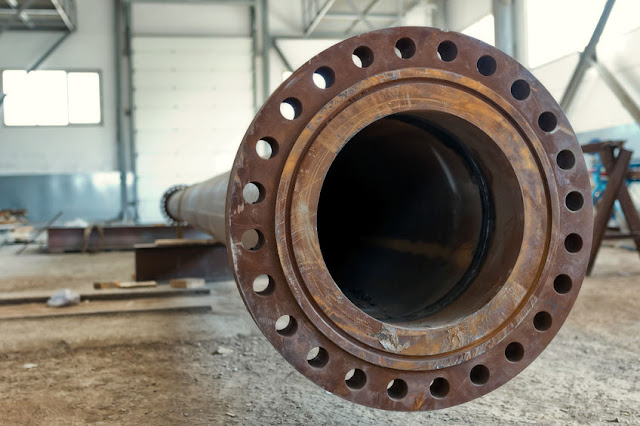Flange Installation Guidelines
What to look at before beginning the installation?
Accessories or connections for the flange: Properly introduced flanged connections give progress fitting to join substitute funneling materials, a mechanical way to interface with valves and other hardware, and join channeling frameworks where continuous destroying might be required. The notched substance of the flange gives a fluid-tight seal on the gasket when flanges are appropriately gathered, upheld, and legitimate torque is applied to the bolts.
Gaskets: Full face 1/8"
thick elastomeric material with a Shore A Durometer hardness of 50-70; gasket
material is chosen should be viable with application and liquids passed on.
Varieties in a gasket material and shore hardness may influence the fixing torque
required.
Dimensions of the flange: Dimensions are more than after according to
the ANSI Flange dimensions. Flange
ring bolt opening dimensions adjust to ANSI B 16.5 Class 150 bolt design.
Strung flange center points are tightened iron line size strings per ANSI B2.1.
Attachment flange center points adjust to ASTM D2467 tightened attachment
dimensions.
Check for the pressure rating: Maximum pressing factor
rating for formed flanges ½" through 12" breadth 150psi non-stun at
73°F. Proper temperature de-rating factors should be applied when working at
raised temperatures more prominent than 73°F.
Bolt Torque or Bolts: Select appropriate bolt size, amount, length, and washers for the particular sizes of flanges and gear being collected. Continuously utilize two (2) wide level washers per bolt (one under the head and one under the nut). Strings ought to be spotless and all around greased up. The bolts to be chosen depending on the flange thickness. Recheck the flange thickness and flange wall thickness before beginning to assemble them on site.
The Installation
When the flange hub is accurately
joined to the pipe and permitted to fix appropriately, and the piping framework
is upheld appropriately, the strategy for joining two flanges is as per the
following:
· Ensure
the framework is appropriately upheld and adjusted, and that mating surfaces of
flanges being joined are definitely not isolated. Try not to utilize bolts to
adjust the framework or arrange flanges.
· With
gasket set up, adjust all bolt holes of mating flanges by pivoting the flange
ring into position.
· Supplement
all bolts, level washers (two standard level washers for every bolt), and nuts.
· Be
sure the essences of the mating surfaces are flush against the gasket before
bolting down the flanges.
· Utilizing
the outlined bolt-fixing grouping appeared underneath, fix every one of the
nuts by hand until easy. When it is easy by hand, fix the bolts entirely
inverse one another (180°) utilizing the arrangement that appeared with a torque
wrench. Apply uniform pressing factor across the flange by fixing in phases of
5 ft-lb increases until definite torque values appeared in the accompanying
table are gotten. Don't over fix. Do not over-torque the flange.
· Care should be taken to try not to twist stresses to the flange when mating to raised confronted flange, metallic flange, fixed flanged items or wafer-style valves. The plastic flange, attached pipe, fitting, and or valve should be upheld appropriately to dispose of stress on the plastic flange.
To Conclude,
Gaskets are essential elements and
must be handled and installed well. Taking care of the material and thickness
of the gasket ensures successful installation of the flange thereby permitting
you to work. The type of accessories depends
on the flange specifications. Dimensions requiring to be more prominent, ASME
flange dimensions (mostly) are used as a standard reference to ensure quality
and geometric dimensions and tolerances.
If you still have any doubts about
flange installation, do let us know in the comment section!


.png)

Comments
Post a Comment